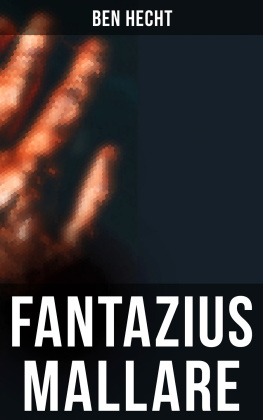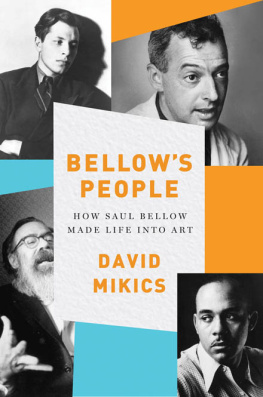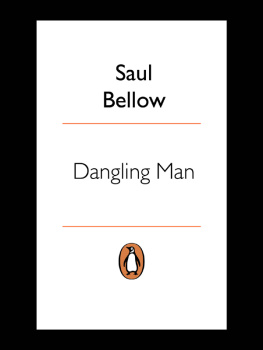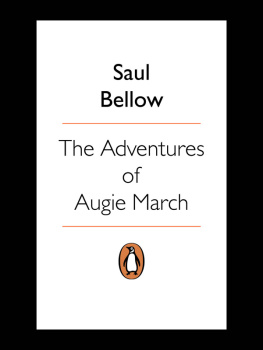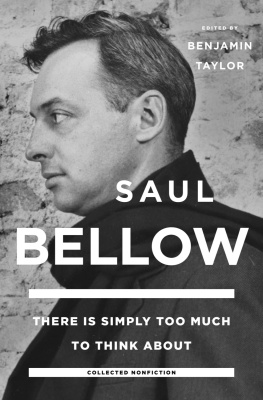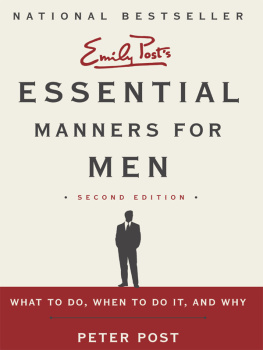Copyright 1954 by Ben Hecht; renewed 1982 by Charles A. Mantione as executor of the estate of Ben Hecht. Copyright transferred to The Newberry Library in 1994. Originally published by Simon and Schuster in 1954.
Published in paperback by Primus in 1985.
Introduction copyright 2020 by David Denby. Parts of David Denbys introduction appeared in a different form in the New Yorker of February 11, 2019.
All rights reserved.
This book may not be reproduced, in whole or in part, including illustrations, in any form (beyond that copying permitted by Sections 107 and 108 of the U.S. Copyright Law and except by reviewers for the public press), without written permission from the publishers.
Yale University Press books may be purchased in quantity for educational, business, or promotional use. For information, please e-mail (U.K. office).
Printed in the United States of America.
A catalogue record for this book is available from the British Library.
But there is a spirit in man.... Fair
weather cometh out of the north...
Contents
INTRODUCTION BY
DAVID DENBY
Book One:
WHO AM I?
Book Two:
THE CALIPHATE
Book Three:
CHICAGO
Book Four:
I WAS A REPORTER
Book Five:
ARTIST, FRIEND, AND MONEYMAKER
Book Six:
THE COMMITTEE
Introduction
David Denby
A Child of the Century is a great and strange American book, a garrulous text devoted to self-portraiture and to everything else: literary and journalistic history, sexual anecdotes and reflections, the manners and morals of our forefathersin all, a book as redolent of its time and place (early- to mid-twentieth-century America) as laughter in a packed movie house or the sound of a cross-country express rushing through the night. Ben Hecht, journalist, novelist, controversialist, and surely the greatest of American screenwriters, finished A Child of the Century in 1954, near the end of his extraordinary career. The author of such plays and movies as Scarface, The Front Page, Nothing Sacred, and Notorious was broke; his novels were out of print and were unlikely to be revived; he was disgusted with Hollywood, which was in thrall to anti-Communism, and which, in any case, had lost interest in him. He had been thinking of an autobiography for years; the book was his last claim on literary glory.
Hecht was one of the great talkers of the American twentieth century, and for his memoir he created a literary speaking voice, flexible and companionable, in which succinct anecdotes, tall tales, and acrid truth-telling exist side by side in almost unimaginable profusion. As literary forebears, he evoked Rabelais and The Arabian Nights; Americans are more likely to think of Mark Twains stories and his ramshackle, intermittent autobiography; or of H. L. Menckens supercharged essays, reporting, and memoirs. A Child of the Century is an American classica best seller in 1954, then forgotten for decades, now available again at a time of renewed interest in Hecht.
But how to read it? In what spirit to read it? A literal reading of it would leave one puzzled and almost hurt. Consider this narrative patch, taken almost at random: Hecht tells us that on July 2, 1910, at the age of sixteen, he left the University of Wisconsin after attending for exactly three days. He took the train to Chicago with fifty dollars in his pocket. After sleeping on a bench in the Chicago railroad station, he bought a ticket at the Majestic Vaudeville Theater, only to be accosted by a distant uncle, Manny Moyses, a liquor salesman with a large red nose. Moyses pried him loose from the ticket line and brought him to meet a client who also had a red nose, the publisher of the Chicago Daily Journal, one John C. Eastman. The publisher was throwing a party that night and needed something he could recite. He told the young man he would hire him if he wrote a profane poema poem about a bull that swallows a bumble bee (dont ask). While Eastman was out to lunch, Hecht wrote the poem; he got the job. For some months thereafter he wrote nothing for the Journal, but made himself useful by invading the houses of people suffering one tragedy or another (fire, rape, murder) and stealing a picture of the victim, usually a woman, which would then appear in the paper. At the age of seventeen, he became a full-time reporter, and attained what he called a bug-in-a-rug citizenship of Chicago. He recalls the local-journalism obsessions of the city in the nineteen tens and twentiesspectacular crimes and municipal frauds, a general atmosphere of license, exploitation, and swindle. The Stockyards owners, he tells us, imported Billy Sunday to divert their underpaid hunkies from going on strike by shouting them dizzy with God.
As prose, that last sentence is stunning. But how much of the coming-to-Chicago tale is true? Its impossible to say, but truth, in this case, may not be entirely the point. As Norman Mailer noted in 1973, Hecht was never a writer to tell the truth when a concoction could put life in his prose. Hechts gift for confabulated anecdote suggests one reason why, years before writing A Child of the Century, he had been so successful as a Hollywood entertainer. What he got out of his ruffian journalistic years shaped his temperament, and that temperament in turn shaped American movies in the thirties. The raffishness, the abruptness, the fusillade of insults and wisecracks; the fascination with violence and the illicit; the division of the world into the knowing (usually urban and male) and the saps (often rural)such qualities made the comedies and melodramas of the thirties a new, hardheaded American art, an art that moved faster and shallower than life. As you read the book, you need to think, This man created a good part of the way Americans talked and felt eighty years ago.
From the time he was a teenager, Hecht was a sleeplessly productive writer, turning out articles, novels, plays, screenplays, and tracts. In other ways he was uncertain of his identity. He says he never thought of him self as a Jew until the late nineteen thirties, but, in the following years, he struggled to rouse Hollywood and New York to the ongoing massacres in Nazi-occupied Europe and Russia, which few wanted to hear about. By the end of the war, he had thrown in his lot with the anti-British Israeli terrorist group the Irgun, and had become the noisiest Zionist in America. In retrospect, one realizes, despite Hechts denials, that the entire book could be called an American Jews progress through the twentieth century. He was not a brilliant physicist (J. Robert Oppenheimer), a literary genius (Saul Bellow), a great jurist (Louis Brandeis). He was actually a bit of a rogue. But he had in abundance those qualitiesliteracy, quickness, flexibilitythat made the twentieth century a good time for Jews lucky enough to avoid the European catastrophe. An extremely intelligent man who loved stories and sensation, he became a major influence on journalism and popular culture.
He narrates in clumps, interrupts himself, expands on themes provoked by what he observed in Chicago, Berlin, New York, Hollywood. A number of obsessions show upsex in all its varieties; corruption, political and social; the defiant wildness of Chicago and Berlin; the self-conscious timidity of intellectual and show-business Jews in New York; the American abundance, never far from farce and self-delusion. The weakest part of Hecht is a cracker-barrel philosopher, sharp in the notation of specific detail but airy and redundant in general speculation. One wants to edit the book; some of it strains patience. Hechts own life remains scattered among the many evocative stories and observed social scenes, the manifold adumbration of his favorite ideas. If you want a clear and detailed plan of his life, I would suggest reading, as a companion volume to



